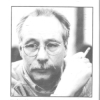W. G. Sebald

W. G. Sebald
Winfried Georg Sebald— known as W.G. Sebald or Max Sebald — was a German writer and academic. At the time of his death at the age of 57, he was being cited by many literary critics as one of the greatest living authors and had been tipped as a possible future winner of the Nobel Prize in Literature. In a 2007 interview, Horace Engdahl, former secretary of the Swedish Academy, mentioned Sebald, Ryszard Kapuściński and Jacques Derrida as three recently...
NationalityGerman
ProfessionWriter
Date of Birth18 May 1944
CountryGermany
Human civilization has been no more than a strange luminescence growing more intense by the hour, of which no one can say when it will begin to wane and when it will fade away.
I have always kept ducks, even as a child, and the colours of their plumage, in particular the dark green and snow white, seemed to me the only possible answer to the questions that are on my mind.
Everything our civilization has produced is entombed.
Men and animals regard each other across a gulf of mutual incomprehension.
It is a sore point, because you do have advantages if you have access to more than one language. You also have problems, because on bad days you don't trust yourself, either in your first or your second language, and so you feel like a complete halfwit.
It seems to me then as if all the moments of our life occupy the same space, as if future events already existed and were only waiting for us to find our way to them at last, just as when we have accepted an invitation we duly arrive in a certain house at a given time.
I feel more and more as if time did not exist at all... only various spaces interlocking according to the rules of a higher form of stereometry[the geometric measurement of solid bodies], between which the living and the dead can move back and forth as they like, and the longer I think about it the more it seems to me that we who are still alive are unreal in the eyes of the dead.
How far, in any case, must one go back to find the beginning?
The capital amassed in the eighteenth and nineteenth centuries through various forms of slave economy is still in circulation, said De Jong, still bearing interest, increasing many times over and continually burgeoning anew.
The moral backbone of literature is about that whole question of memory. To my mind it seems clear that those who have no memory have the much greater chance to lead happy lives.
The Noonday Demon explores the subterranean realms of an illness which is on the point of becoming endemic, and which more than anything else mirrors the present state of our civilization and its profound discontents. As wide-ranging as it is incisive, this astonishing work is a testimony both to the muted suffering of millions and to the great courage it must have taken the author to set his mind against it.
Only in the books written in earlier times did she sometimes think she found some faint idea of what it might be like to be alive.
Otherwise, all I remember of the denizens of the Nocturama is that several of them had strikingly large eyes, and the fixed inquiring gaze found in certain painters and philosophers who seek to penetrate the darkness which surrounds us purely by means of looking and thinking.
... the current of time slowing down in the gravitational field of oblivion.